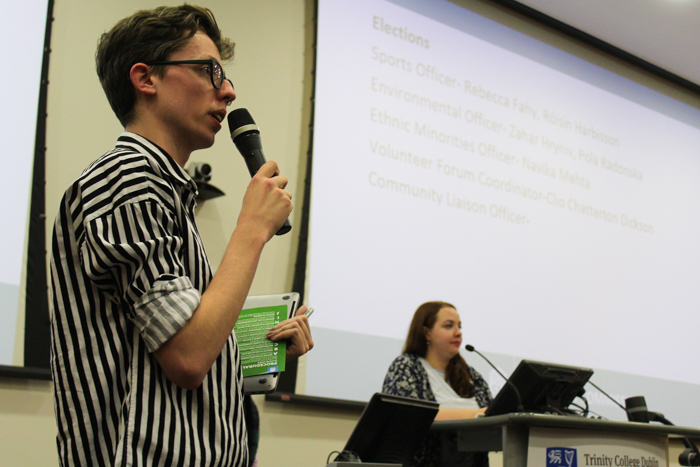Following questions over its future, Trinity College Dublin Students’ Union’s (TCDSU) academic senate is set to be reformed after its one-year pilot.
Key changes to the senate will include allowing first-year students to apply to serve as academic senators and holding half of the meetings in the Hamilton, in order to better facilitate and engage the students based there.
Speaking to The University Times, TCDSU Education Officer Aimee Connolly said the academic senate “has been positive for the union and for getting people involved with their own education”.
Moving meetings to the Hamilton, Connolly hopes, will make the senate a “more inclusive” environment for Stem students to voice their concerns. By inviting students in first year to join and represent their classes, Connolly said she is aiming to create “a whole cohort of mini-education officers across the College”.
“I think it would be a shame to alienate a quarter of the student population just because they might not have as much knowledge as other years students”, Connolly said. “You can definitely find a fourth-year student who knows absolutely nothing about academics in Trinity and you can find a first-year student who’s been here for four weeks and is so passionate about it and has so much to give.”
The idea for the academic senate was first introduced two years ago by former Education Officer Dale Whelehan to improve efficiency within the union and reduce the responsibilities of class representatives. Whelehan’s successor Alice MacPherson took charge of the initiative and oversaw the senate during its pilot year.
Despite concerns raised last year, such as low turnout among senators and the body’s lack of decision-making power, Connolly is optimistic that these new changes will see the academic senate develop “a solid foundation and more of a solid idea of where we want to go in the future”.
Many changes to the curriculum will come with the implementation of the Trinity Education Project this year. The project is a radical reimagining of how the College delivers its undergraduate curriculum. Some of the key changes include the introduction of Christmas exams and the increased emphasis on continuous assessment.







